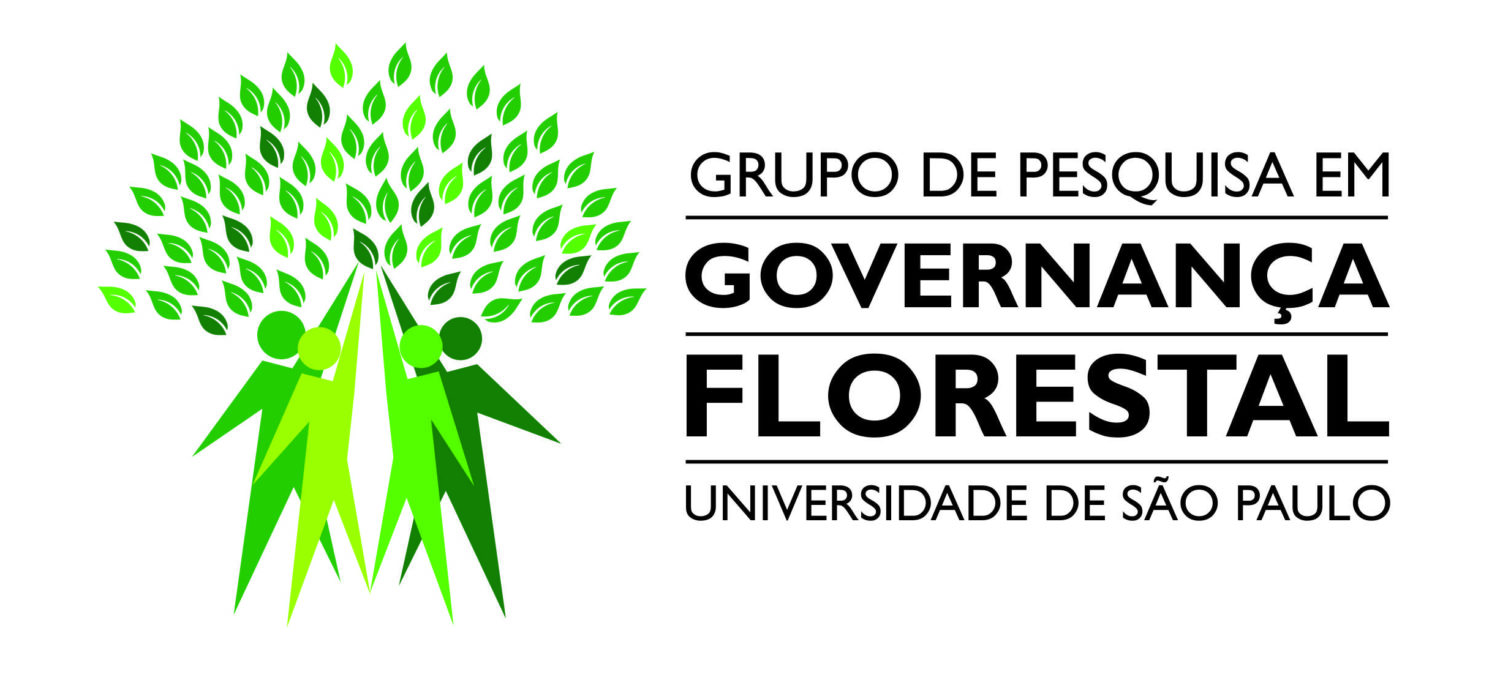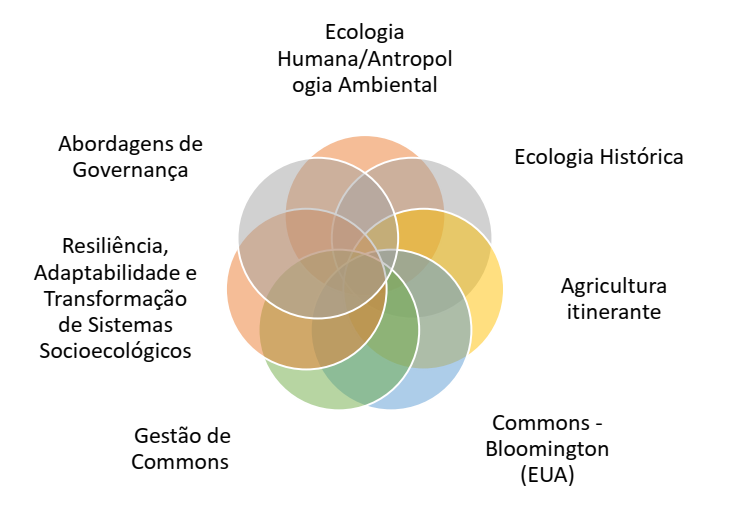
Linhas Teóricas
Ecologia Humana/Antropologia Ambiental
BRONDÍZIO E. S., ADAMS R. T., FIORINI S. 2017. History and Scope of Environmental Anthropology. In: Helen Kopnina and Eleanor Shoreman-Ouimet (Eds.), Routledge Handbook of Environmental Anthropology. New York: Routledge. pp. 10-30. (https://www.routledgehandbooks.com/doi/10.4324/9781315768946.ch2)
BRONDÍZIO, E. S. Foundations of environmental anthropology (https://www.youtube.com/watch?v=9kOdvJeeiNc&ab_channel=TheNationalSocio-EnvironmentalSynthesisCenter)
Agricultura itinerante
CONKLIN, H. C. 1961. The Study of Shifting Cultivation. Current Anthropology 2(1): 27-61. (https://www.jstor.org/stable/2739597?seq=1#metadata_info_tab_contents)
MERTZ, O. 2002. The relationship between length of fallow and crop yields in shifting cultivation: a rethinking. Agroforestry Systems 55: 149–159. (https://link.springer.com/article/10.1023/A:1020507631848)
Commons – Bloomington (EUA)
SCHLAGER E., OSTROM E. 1992. Property-Rights Regimes and Natural Resources: A Conceptual Analysis. Land Economics, Vol. 68, No. 3 (Aug., 1992), pp. 249-262. (https://www.jstor.org/stable/3146375?seq=1#metadata_info_tab_contents)
ANDERSSON K. P., OSTROM E. Analyzing decentralized resource regimes from a polycentric perspective. Policy Sci (2008) 41:71–93. (http://dx.doi.org/10.1007/s11077-007-9055-6)
OSTROM E. 2009. Design Principles of Robust Property Rights Institutions: What Have We Learned? In: Gregory K. Ingram and Yu-Hung Hong (Eds.), Property Rights and Land Policies. Proceedings of the 2008 Land Policy Conference. Cambridge, Massachusetts: Lincoln Institute of Land Policy. (https://www.lincolninst.edu/sites/default/files/pubfiles/2076_1399_LP2008-ch02-Design-Principles-of-Robust-Property-Rights-Institutions_0.pdf)
OSTROM E. 2011. Background on the Institutional Analysis and Development Framework. The Policy Studies Journal, 39(1): 7-27. (https://onlinelibrary.wiley.com/doi/abs/10.1111/j.1541-0072.2010.00394.x)
McGINNIS, M. D., OSTROM E. 2014. Social-ecological system framework: initial changes and continuing challenges. Ecology and Society 19(2): 30. (http://dx.doi.org/10.5751/ES-06387-190230)
Gestão de Commons
Armitage, D., F. Berkes, and N. Doubleday, editors. 2007. Adaptive Co-Management: Collaboration, Learning, and Multi-Level Governance. University of British Columbia Press, Vancouver
Berkes, F., Feeny, D. McCay, B.F., Acheson, J.M. 1989. The Benefits of the Commons. Nature, 340:91-93.
Berkes, F. 1994. Co-management: bridging the two solitudes. Northern Perspectives, 22(2-3): 18-20.
Berkes, F. 1999. Sacred Ecology. New York: Taylor and Francis.
Berkes, F. 2002. Cross-scale institutional linkages for commons management: Perspectives from the bottom up. In: Drama of the Commons (E. Ostrom et al., eds.) National Academy Press, Washington DC, pp. 293-321.
Berkes, F. 2006. From community-based resource management to complex systems. Ecology and Society, 11(1): 45. [online] URL: http://www.ecologyandsociety.org/vol11/iss1/art45/
Berkes, F. 2007. Community-based conservation in a globalized world. Proceedings of the National Academy of Sciences 104: 15188–15193.
Berkes F, Folke C. 1992. A systems perspective on the interrelations between natural, human-made and cultural capital. Ecol. Econ. 5:1–8
Berkes, F. and C. Folke, 1998. Linking social and ecological systems: management practices and social mechanisms for building resilience. Cambridge University Press, Cambridge, UK.
Berkes F, Colding J, Folke C, eds. 2003. Navigating Social-Ecological Systems: Building Resilience for Complexity and Change. Cambridge, UK: Cambridge Univ. Press
Charles, A., Loucks, L., Berkes, F., Armitage, D. (2020). ‘Community science: A typology and its implications for governance of social-ecological systems’. Environmental Science & Policy 106:77–86. Available at: https://doi. org/10.1016/j.envsci.2020.01.019
Holling CS, Berkes F, Folke C. 1998. Science, sustainability, and resource management. See Ref. 40, pp. 342–62
Lee, K. N. 1999. Appraising adaptive management. Conservation Ecology 3(2): 3. [online] URL: http://www.ecologyandsociety.org/vol3/iss2/art3/http://dx.doi.org/10.1201/9781420042597.sec1
Walters, C. J. 1986. Adaptive management of renewable resources. Macmillan, New York, New York, USA.
Ecologia Histórica
BALÉE, W. 2006. The Research Program of Historical Ecology. Annu. Rev. Anthropol. 2006. 35:75–98. (https://www.annualreviews.org/doi/abs/10.1146/annurev.anthro.35.081705.123231?journalCode=anthro)
Resiliência, Adaptabilidade e Transformação de Sistemas Socioecológicos
Folke C, Carpenter S, Walker B, Scheffer M, Elmqvist T, et al. 2004. Regime shifts, resilience, and biodiversity in ecosystem management. Annu. Rev. Ecol. Evol. Syst. 35:557–81
Folke, C. 2006. Resilience: The Emergence of a Perspective for Social-Ecological Systems Analyses. Global Environmental Change 16: 253-267.
Holling, C.S. 1973. Resilience and stability of ecological systems. Annual Review of Ecology and Systematics 4:1-23.
Holling CS. 1978. Adaptive Environmental Assessment and Management. London: Wiley
Holling, C. S. 1996. Surprise for Science, Resilience for Ecosystems, and Incentives for People. Ecological Applications 6, no. 3: 733-35.
Walker, B., C. S. Holling, S. R. Carpenter, and A. Kinzig. 2004. Resilience, adaptability and transformability in social-ecological systems. Ecology and Society 9(2): 5. [online] URL: http://www.ecologyandsociety.org/vol9/iss2/art5
Abordagens de Governança
Folke, C., T. Hahn, P. Olsson, and J. Norberg, 2005. Adaptive governance of social-ecological systems. Annual Review of Environment and Resources, 30:441-473.
Kooiman, J. 2005. Governing as governance. Rotterdam: Sage, 2005, 249 pp.
Kooiman, J., M. Bavinck, S. Jentoft, and R. Pulin, editors. 2005. Fish for Life: Interactive Governance for Fisheries. Amsterdam University Press, Amsterdam.
Lemos, M. C., and A. Agrawal. 2006. Environmental governance. Annual Review of Environment and Resources 31:297-325. http://dx.doi.org/10.1146/annurev.energy.31.042605.135621
Copyright © 2026 Grupo de Pesquisa em Governança Florestal (GGF) | Produzido por SCS - Mídias Online
